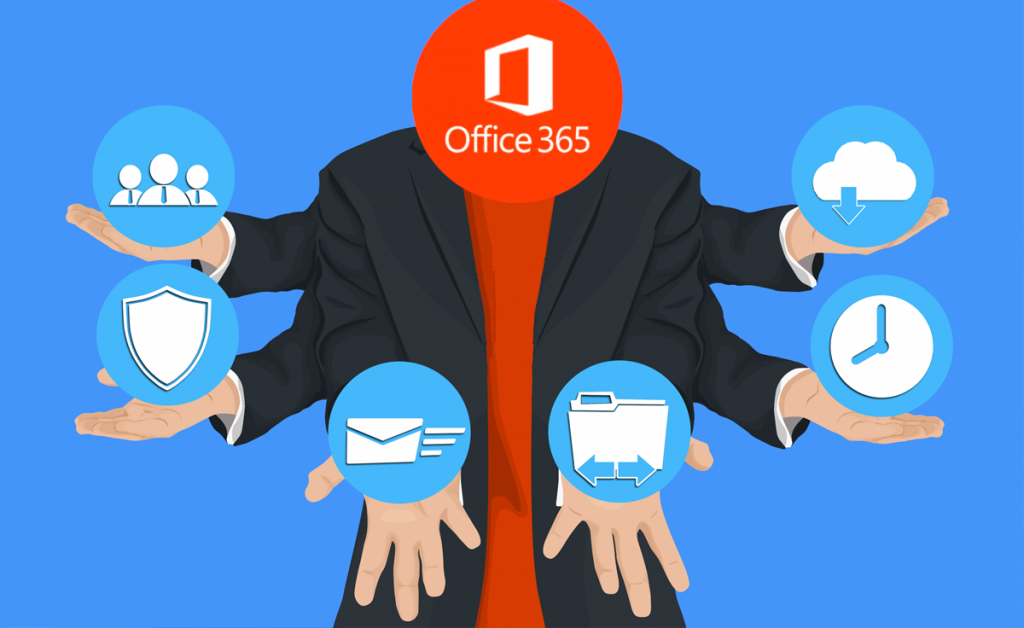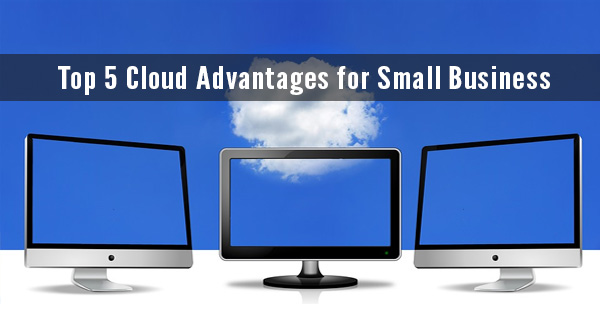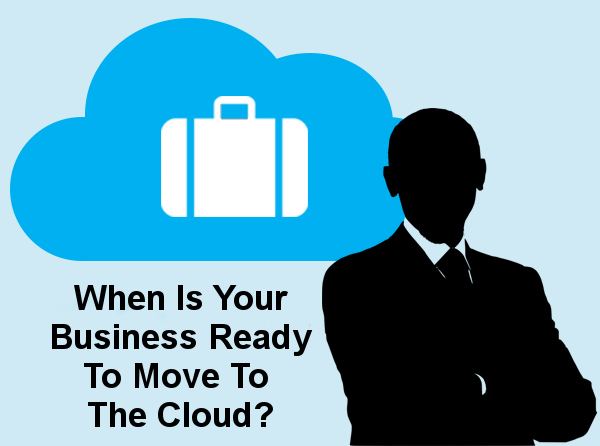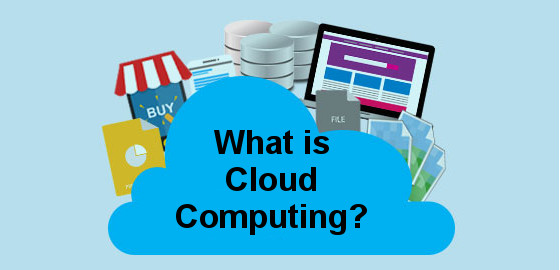
| Cloud computing has been front and centre of the global shift to remote working. Find out how you can maximize this technology for your small business. Continue reading |


| Cloud computing has been front and centre of the global shift to remote working. Find out how you can maximize this technology for your small business. Continue reading |

Unless you have been living in a cave, you would have come across people talking about cloud this and cloud that. This blog article intends to help explain what “the cloud” is and why you should care about it. Continue reading

Cloud computing has an enormous amount of potential. It could drastically change the way that individuals and businesses think about the internet. Cloud computing is already blurring the lines between home and work for many people, making it easy for workers to access business systems remotely and perform their jobs off-site. More businesses are choosing cloud services for their data management – whether it’s in health care, finance, marketing, sales, web development and more. Continue reading
 Office 365 (or O365) represents a shift in the way businesses and IT operate. If you haven’t seen it yet, I highly recommend you schedule a demo with us ASAP. While it is similar to the Microsoft Office desktop package that businesses have used for decades; Office 365 does even more. It provides the critical tools you need to modernize your business environment, take control of your business and brings corporate grade functionality to your business at a low price.
Office 365 (or O365) represents a shift in the way businesses and IT operate. If you haven’t seen it yet, I highly recommend you schedule a demo with us ASAP. While it is similar to the Microsoft Office desktop package that businesses have used for decades; Office 365 does even more. It provides the critical tools you need to modernize your business environment, take control of your business and brings corporate grade functionality to your business at a low price.
Out of all the disruptive technologies that have emerged in the last few decades, not many have had as big of an impact as cloud computing. Known by many names, this practice allows companies to store information on servers located off-premises, but are still accessible to their employees via the internet. Continue reading

IT support services can be one of the largest and most unpredictable expenses within a modern business. Unexpected failures, mandatory upgrades and sudden staff changes can happen quickly and the costs can soon add up.
These factors are a part of the IT world and make IT departments costly, hard to manage, and difficult to budget for.
Switching your business to a proactive IT support provider (or managed service provider – MSP) can lower costs and reduce unpredictable expenses. Making the switch can cut down management overheads and reduce budgets to a fixed monthly cost. Here are some tips on how this can be done:

Cloud technology has been a revolution for small business, changing the way you store, share and backup files. While ‘the cloud’ is often hard to understand because it’s neither in the sky or in a single location, there’s no arguing that it’s driving growth across the board. Storage concerns are a thing of the past as small businesses like yours embrace the flexibility, cost savings and protections of cloud solutions. We’ve done the research for you and identified the top 5 ways small businesses benefits from making the move.
It’s Cheaper
Budget is always a factor for many businesses, many of which are further constrained by pressures from managers and owners. Some regard investing in cloud solutions as a large expense that can be put off indefinitely. In most cases though, making the switch to cloud storage costs a fraction of the price. Compared in powering servers, scaling to keep up, regular support and then repairs when problems occur, cloud storage offers extraordinary savings. With one decision, you get access to high-end infrastructure and dedicated support. Cloud solutions were specifically created to meet your needs, which means you only pay for what you use. Costs remain capped while the benefits continue to rise, a clear advantage for the budget-conscious business.
It’s Secure
A lot of people like having their data where they can see it but that is not always the safest option. Natural disasters seem more frequent than ever, break-ins are a worry, and employees are always losing laptops and phones or have them stolen. More often though, someone simply makes a mistake and deletes important files, or accidentally infects the system with malware. Cloud storage mitigates these risks, with storage in ultra-secure locations, protected against disasters, and committed to robust backup systems. In recent times particularly, we’ve seen many small businesses survive ransomware attacks purely because their critical data was secure in the cloud with clean backups available.
It’s Compliant
We know medical businesses and services need to follow certain regulations when it comes to patient data. This includes security as well as data integrity, plus backups and auditing. Many cloud providers acknowledged this need early on and made sure to offer compliance guarantees. They therefore keep abreast of changing regulations, often implementing new requirements before you’ve even heard about them. With cloud storage systems, you essentially slash your compliance workload and let your cloud provider do all the worrying.
It’s Portable
One of the key benefits of cloud storage is your ability to collaborate remotely. In the past, this would have involved multiple file copies that need to be merged back together, often confusing employees as to which is the ‘right’ file. With cloud storage, your staff can work on the same file, using the same interface and real-time updates. Even having different versions of software is no longer an issue. Employees can work on a file in the office and then securely access the same file at home, or elsewhere on their smartphone or laptop without needing to buy additional software or worry about version corruption. Sharing and collaborating becomes easier, more desirable and more secure, which helps puts your business on track to reach your goals.
It’s Easy to Migrate
One of the biggest concerns we hear is that it will be too disruptive to migrate to cloud solutions all at once. That’s okay. We don’t have to do it all in one day, we can migrate it in parts. For example, you can move your email to the cloud, or just remote file storage. As your various servers and systems age out or need repair, we can help you move each to the cloud, which means your downtime is minimal to non-existent. You can also actively choose a hybrid approach to keep your legacy applications, with no pressure to move them to the cloud. Our technicians can help ensure smooth integration across your entire business, making sure all your systems work seamlessly together, whether in-house or in the cloud.
Talk to us about your cloud options by calling us at 08 8326 4364 or at
su*****@dp*********.au
 By now you would have heard of the cloud and know that the cloud is not going away any time soon (click here to learn more about cloud computing). In fact, thanks to its many benefits, cloud computing has become a natural step in business growth. More and more business applications are being released in an online format and staff are becoming more familiar with this type of interface. So when is the right time to move your business computing to the cloud?
By now you would have heard of the cloud and know that the cloud is not going away any time soon (click here to learn more about cloud computing). In fact, thanks to its many benefits, cloud computing has become a natural step in business growth. More and more business applications are being released in an online format and staff are becoming more familiar with this type of interface. So when is the right time to move your business computing to the cloud?
As the cloud has become mainstream many businesses are facing this question. Like any strategic business decision though, timing is everything. Here are a few factors to consider before making the switch.
If your current servers are reaching their end of life and a large capital investment is needed you may be able to minimize the expense by moving to the cloud. This can be a huge cost saving made in just moments.
Many businesses now have a mobile workforce that needs access to files from anywhere and at any time. Cloud computing allows your staff to work safely, securely and efficiently from any location with internet access.
If your business currently outsources your IT management and support you are perfectly suited for the move to the cloud. Network maintenance and monitoring becomes a non-issue as it is handled automatically as part of the cloud service. You will find problems are fixed before you knew they existed and server downtime becomes a thing of the past.
If you move to the cloud your internet speed becomes a important factor to consider. If you currently have a slow and unstable connection you may need to examine other Internet options (ie NBN, fibre, MBE, EFM and 4G) for faster speed or maybe even look at delaying your move until a faster service is available. Having a failover Internet connection is also preferable in case anything happens to your main link.
Need for predictable IT costs
If your IT costs sometimes spiral out of control, challenging your patience and budget, cloud computing will seem like a dream come true. With the cloud you are moving from a capital expense to an operational one – server replacements are no longer your concern. You can budget for IT costs in advance with the majority of your IT expenditure already known leaving your cash flow free for other expenses.
Now that cloud computing is more advanced, secure and priced competitively it is a good time to examine your options. At its core, cloud computing is purely about doing things better and can have a massive impact on your profits, productivity and even staff satisfaction rates.
We offer a variety of cloud services to help your business. Give us a phone call at 08 8326 4364 or via email on mailto:su*****@dp*********.au” data-original-string=”WOIUup4Zzgpc9q0lASm25g==40eXwvSbJ4eBFK80sn0H4j65wpjMEOIAGgxCfnIz/rj9GE=” title=”This contact has been encoded by Anti-Spam by CleanTalk. Click to decode. To finish the decoding make sure that JavaScript is enabled in your browser. to discuss how we can improve your business IT.
 All you here about now a days is cloud this, cloud that. But what actually IS the cloud? Most people don’t understand it so don’t worry as you are not alone.
All you here about now a days is cloud this, cloud that. But what actually IS the cloud? Most people don’t understand it so don’t worry as you are not alone.
The cloud or cloud computing is about storing your data (personal or business) on the internet. This allows you to access the data from anywhere, just like you do a web page. It doesn’t matter if you are working from home or at the beach on holidays you can access the data and even collaborate with colleagues just as if you were sitting in the office.
If may sound futuristic but email services such as Gmail and Hotmail (now Outlook.com) have been providing this service for quite a while now. With Gmail and Hotmail none of your emails are actually stored on your local device as they are stored in the cloud on Google’s or Microsoft’s servers allowing you to access them anytime you like.
Netflix is another cloud provider. Netflix allows you to access movies and television shows stored remotely on Netflix’s cloud server any time you want. Netflix even remembers what you watched and where you were up to every time you login (even if you are on a different device).
They are stored on another computer in a large data center that is connected to the internet. These data centers are huge and contain rows and rows of servers and data storage.
In terms of location, the US is a popular site, but the machines can be located in any location in the world and may even be in multiple locations to provide redundancy – if problems occur at one location, the other location still has a copy.
With some cloud providers you can choose your preferred location. This helps with local privacy laws and can increase speed of access (as the data doesn’t have to travel as far across the world).
So cloud computing can provide better collaboration, security and redundancy.
Ready to take advantage of cloud computing? Give us a call on 08 8326 4364 or at
su*****@dp*********.au
. Or check out our other article on “When Is You Business Ready To Move To The Cloud“.